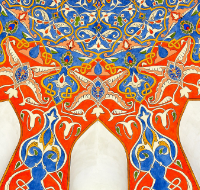 I don’t agree with the heroization of entertainers, athletes, lucky survivors, and the strong-willed handicapped.
I don’t agree with the heroization of entertainers, athletes, lucky survivors, and the strong-willed handicapped.
If you’ve scored a bunch of touchdowns, performed in a great film, survived a devastating attack, or managed to walk despite the odds: that’s super! It’s fantastic, and in many cases it is even downright inspiring. But that does’t make you a hero.
That firefighter who goes into a burning building to save a kid, the soldier or cop who braves bullets to save his comrades or citizens, or someone who RosaParks in the face of oppression despite risks of legal or physical consequences — those are the heroes.
But we don’t just need these heroes. Heroes help make sure that we can survive in the physical world, which is critically important, but it is the artists and those who enable them who make the world livable. I use the word “artist” here inclusively to mean anyone who creates an expression from within: painters, musicians, writers, actors, etc.
Society and the people in it benefit tremendously from art. Not to get too dramatic about it: Artists are not heroes; but artists are the ones who tend to the embers of creativity, compassion, and joy within us, keeping them glowing and helping them spark and grow.
We actually do *need* art, yet supporting art (and those who create it) is something we don’t do enough. Hundreds of years ago, artists were supported by wealthy patrons, and that’s why we have such a thing today as the music of Mozart and likely about half the artworks in the Louvre. It unnerves me to think of the many, many amazing artistic masterpieces that have fizzled and died unseen and unheard in the hearts of their would-be creator’s because they couldn’t find funding. That is art we will never see, hear, read, or otherwise be inspired by.
So my point: As you support real-world heroes, also support the arts. (Of course, it’s nice when patronage doesn’t come with the giant string attached of dictating the subject of the art, which explains why such a staggeringly high percentage of Renaissance art has a religious theme, but I digress…)
And here’s a nice write-up about what we owe to art patrons of the past.